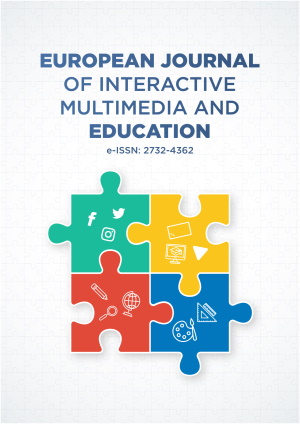European Journal of Interactive Multimedia and Education
European Journal of Interactive Multimedia and Education (EJIMED) is a double-blinded peer-reviewed open-access journal which publishes original articles, and review articles in all domains of interactive multimedia, social/digital media and education. The journal is published biannually every June and November.
European Journal of Interactive Multimedia and Education (EJIMED) is published by Modestum DOO, Serbia.
Current Issue
Volume 7, Issue 1, 2026
(In Progress)
Research Article
Understanding youth responses to digital violence: A qualitative exploration of risk and resilience
EUR J INTERACT MULTIMED ED, Volume 7, Issue 1, 2026, Article No: e02601
https://doi.org/10.29333/ejimed/17851Research Article
Adoption and utilization of e-learning for learning in select tertiary institutions in Kogi State
EUR J INTERACT MULTIMED ED, Volume 7, Issue 1, 2026, Article No: e02602
https://doi.org/10.29333/ejimed/17950
